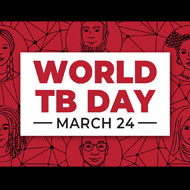A medicines reconciliation toolkit to help pharmacists improve patient safety has been released by the International Pharmaceutical Federation (FIP).
FIP says the toolkit also contributes to the World Health Organisation’s (WHO’s) third Global Patient Safety Challenge – Medication without harm – which lists care transitions as one of three priority areas that need effective action to protect patients.
Transitions of care (such as admission to a healthcare facility, transfer between settings within a facility and at discharge, and also across different prescribers in community settings) can potentially lead to patient harm due to unintentional changes in medication or poor communication.
A recent Cochrane review – Medication Safety in Transitions of Care – found that 55.9 per cent of patients are at risk of having one or more medication discrepancies at transitions of care.
Such medication discrepancies can lead to secondary illnesses, hospital admissions and even deaths.
Medicines reconciliation is a standardised process that involves obtaining a patient’s comprehensive current medication list and reviewing it in relation to medication requested or used in any new setting. This can identify and resolve any discrepancies in medication frequency, route, dose, combination and therapeutic purpose.
Chief Executive Officer of FIP Catherine Duggan said medicines reconciliation represented a key service across all transitions of care and, when led by pharmacists, was effective in reducing medication-related harm to patients.
“With this service, pharmacists can apply their medicines expertise to minimise errors and optimise medicines use, resulting in positive impacts on patient, clinical and economic outcomes. Medicines reconciliation should be practised in every healthcare setting,” Dr Duggan said.
FIP’s toolkit on medicines reconciliation outlines the principles and important processes that pharmacists should follow when providing this professional service. It summarises the definitions, impact and procedures for the implementation of pharmacist-led medicines reconciliation in both community, and hospital healthcare settings and offers a set of tools to support practice.
“Medicines reconciliation could eliminate medication discrepancies at transitions of care if the required resources are made available. The FIP toolkit can also be used as a guide to inform practice models and influence decision-makers and pharmacy practitioners to set up or remodel medicines reconciliation processes,” Dr Duggan said.
Further details can be accessed here.


